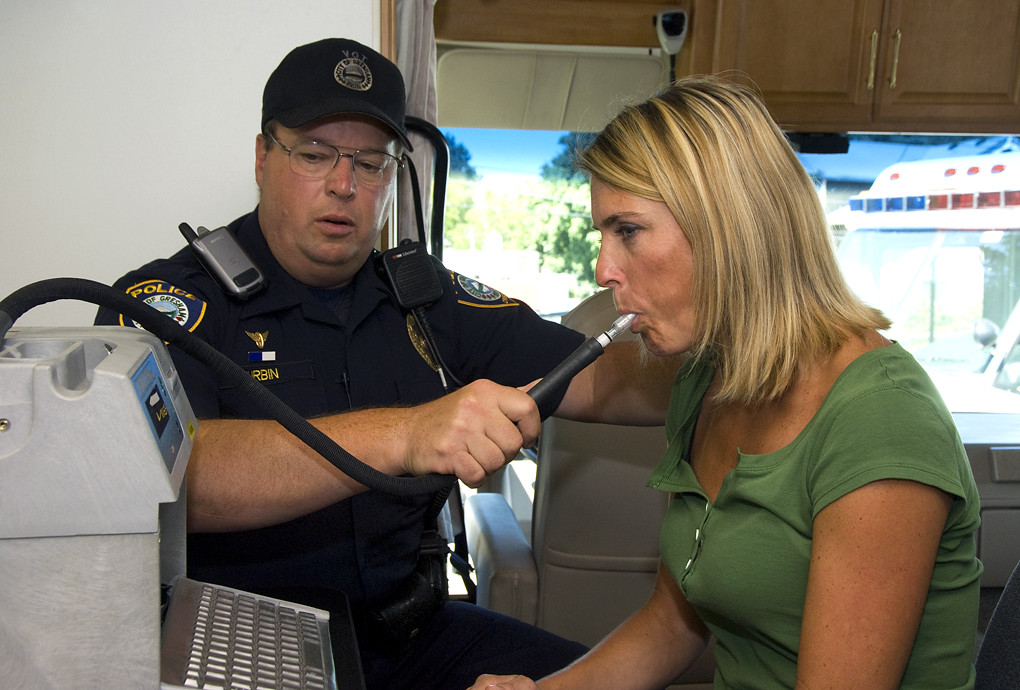Implied Consent in Georgia
Contents
- Implied Consent in Georgia
- What is Implied Consent?
- Georgia Implied Consent Law
- Implied Consent and DUI Arrests
- Implied Consent Refusal and Consequences
- O.C.G.A 40-5-67.1
- FAQs Related to Georgia Implied Consent Laws
- Is implied consent unconstitutional in Georgia?
- What is the doctrine of implied consent?
- What is Georgia’s implied consent law when it comes to DUI?
- What happens when you refuse a breathalyzer in Georgia?
- Are you better off refusing a breathalyzer?
- Can I refuse a field sobriety test in Georgia?
- What are examples of implied consent?
- Is implied consent legally binding?
- Is implied consent unconstitutional?
- Conclusion
You have been arrested for DUI and haven’t been officially tested yet. You will receive an important warning from the officer who just arrested you. He should give you this warning right after arresting you, which means at the scene of the stop. Some officers read it while you are standing in front of the police car so the video camera can record the reading of the warning and your oral responses. It is not uncommon, however, for the officer to put you in the back seat of the police car (in handcuffs) and then read the warning to you.
The Georgia implied consent law means that individuals who are arrested in Georgia must submit to a blood or breath test in order to determine their level of intoxication.
The results from these tests can be used as evidence in court if the individual is accused of driving under the influence. Ultimately, the purpose of this law is to ensure that individuals who are driving while impaired can be held accountable for their actions.

Often, the officer will read it once at the scene and then again at the police station or jail where the breath testing equipment is located. The equipment approved for this breath test in Georgia is shown in the photo. Blood and urine testing procedures will be shown elsewhere. Most officers designate the breath test but may ask the driver to submit multiple tests.
You should listen carefully wherever this warning is read because it is often scanned and hard to understand. I am providing the text of these warnings located in the Georgia Code. Remember, there are different readings for drivers over 21, under 21, and commercial licensees. Before you decide whether to submit to this or any test, carefully read and understand all the material on this site.
What is Implied Consent?
Implied consent is a legal concept used to determine whether an individual has consented to an action. It is based on the assumption that a person has agreed to something if they have not explicitly objected to it. Implied consent is most commonly used in medical treatment, where a patient may be assumed to have consented to a procedure if they have not explicitly refused it. It can also be used in other contexts, such as contracts and sexual relationships. In the case of contracts, implied consent is often assumed if the individual has not explicitly stated that they do not agree to the contract terms. In the case of sexual relationships, implied consent is often assumed if the individual has not explicitly stated that they do not want to engage in sexual activity.
Implied consent is an essential concept in the law, as it can help protect individuals from being taken advantage of or coerced into doing something they do not want to do. However, it is essential to remember that implied consent is not the same as explicit consent and that individuals should always be aware of their rights and communicate their wishes.
Georgia Implied Consent Law
Georgia has an Implied Consent Law, which requires all drivers to submit a chemical test if a law enforcement officer asks. This law is based on the idea that, by operating a motor vehicle on public roads, a driver has already consented to take a chemical test if an officer asks. The chemical test can be a breath, blood, or urine test to determine the driver’s blood alcohol content (BAC). If a driver refuses to take the test, they will be subject to an automatic license suspension and other potential penalties.
The Implied Consent Law is essential in keeping Georgia’s roads safe. It allows law enforcement officers to quickly and accurately determine if a driver is under the influence of alcohol or drugs and take the necessary steps to ensure they are not a danger to themselves or others. It also serves as a deterrent to those considering driving while impaired, as they know they will face severe consequences if caught. Ultimately, the Implied Consent Law helps to keep Georgia’s roads safe for everyone.
Implied Consent and DUI Arrests
In Georgia, implied consent laws require all drivers to submit to a chemical test if they are arrested for driving under the influence (DUI). This means that when a law enforcement officer pulls a driver over and suspects that they are driving under the influence, they can request that the driver submit to a breathalyzer or blood test to determine their blood alcohol content (BAC). If the driver refuses to take the test, they can be charged with a DUI and face several penalties, including jail time, fines, and the suspension of their driver’s license.
Implied consent laws are in place to protect the public from drivers who may be operating a vehicle while impaired. By submitting to a chemical test, drivers consent to be tested for alcohol or drugs. This helps law enforcement officers determine if a driver is impaired and if they should be charged with a DUI.
Drivers must understand that refusing a chemical test can have serious consequences. If a driver is arrested for a DUI and refuses to take the test, they can face harsher penalties than if they had taken the test and been found to be impaired. In addition, the refusal can be used as evidence in court, making it more difficult for the drivers to defend themselves against the charges.
Overall, Georgia’s implied consent laws are in place to protect the public from impaired drivers. By understanding the implications of refusing a chemical test, drivers can make informed decisions and avoid facing harsher penalties.
Implied Consent Refusal and Consequences
Georgia’s implied consent law states that all drivers are deemed to have consented to a chemical test to determine the presence of alcohol or drugs in their system. Refusing to submit to such a test can result in severe consequences. If a driver refuses to submit to a chemical test, they will be subject to an automatic one-year license suspension. This suspension can be reduced to six months if the driver completes an approved DUI Alcohol or Drug Use Risk Reduction Program. Additionally, the driver may be subject to fines and even jail time. Refusing to submit to a chemical test can also be evidence of guilt in a DUI case.
In Georgia, it is essential to remember that drivers must submit to a chemical test if asked to do so by a law enforcement officer. Refusing to submit to a chemical test can result in severe consequences, including an automatic license suspension, fines, and even jail time. It is essential to understand the implications of the implied consent law in Georgia and always comply with law enforcement officers’ requests.
O.C.G.A 40-5-67.1
(a) The test or tests required under Code Section 40-5-55 shall be administered as soon as possible at the request of a law enforcement officer having reasonable grounds to believe that the person has been driving or was in actual physical control of a moving motor vehicle upon the highways or elsewhere throughout this state in violation of Code Section 40-6-391 and the officer has arrested such person for a violation of Code Section 40-6-391, any federal law in conformity with Code Section 40-6-391, or any local ordinance which adopts Code Section 40-6-391 by reference or the person has been involved in a traffic accident resulting in serious injuries or fatalities. Subject to Code Section 40-6-392, the requesting law enforcement officer shall designate which test or tests shall be administered initially and may subsequently require a test or tests of any substances not initially tested. (b) At the time a chemical test or tests are requested, the arresting officer shall select and read to the person the appropriate implied consent notice from the following:
Implied consent notice for suspects under age 21
“Georgia law requires you to submit to state-administered chemical tests of your blood, breath, urine, or other bodily substances for the purpose of determining if you are under the influence of alcohol or drugs. If you refuse this testing, your Georgia driver’s license or privilege to drive on the highways of this state will be suspended for a minimum period of one year. Your refusal to submit to the required testing may be offered into evidence against you at trial. If you submit to testing and the results indicate an alcohol concentration of 0.02 grams or more, your Georgia driver’s license or privilege to drive on the highways of this state may be suspended for a minimum period of one year. After first submitting to the required state tests, you are entitled to additional chemical tests of your blood, breath, urine, or other bodily substances at your own expense and from qualified personnel of your own choosing. Will you submit to the state-administered chemical tests of your (designate which tests) under the implied consent law?”
Implied consent notice for suspects age 21 or over
“Georgia law requires you to submit to state-administered chemical tests of your blood, breath, urine, or other bodily substances for the purpose of determining if you are under the influence of alcohol or drugs. If you refuse this testing, your Georgia driver’s license or privilege to drive on the highways of this state will be suspended for a minimum period of one year. Your refusal to submit to the required testing may be offered into evidence against you at trial. If you submit to testing and the results indicate an alcohol concentration of 0.08 grams or more, your Georgia driver’s license or privilege to drive on the highways of this state may be suspended for a minimum period of one year. After first submitting to the required state tests, you are entitled to additional chemical tests of your blood, breath, urine, or other bodily substances at your own expense and from qualified personnel of your own choosing. Will you submit to the state-administered chemical tests of your (designate which tests) under the implied consent law?”
Implied consent notice for commercial motor vehicle driver suspects
“Georgia law requires you to submit to state-administered chemical tests of your blood, breath, urine, or other bodily substances for the purpose of determining if you are under the influence of alcohol or drugs. If you refuse this testing, you will be disqualified from operating a commercial motor vehicle for a minimum period of one year. Your refusal to submit to the required testing may be offered into evidence against you at trial. If you submit to testing and the results indicate the presence of any alcohol, you will be issued an out-of-service order and will be prohibited from operating a motor vehicle for 24 hours. If the results indicate an alcohol concentration of 0.04 grams or more, you will be disqualified from operating a commercial motor vehicle for a minimum period of one year. After first submitting to the required state tests, you are entitled to additional chemical tests of your blood, breath, urine, or other bodily substances at your own expense and from qualified personnel of your own choosing. Will you submit to the state-administered chemical tests of your (designate which tests) under the implied consent law?”
Is implied consent unconstitutional in Georgia?
No, implied consent is not considered unconstitutional in Georgia. In fact, the state of Georgia has an implied consent law, meaning that when a person operates a motor vehicle in Georgia, they are deemed to have given their consent to sobriety testing if requested by law enforcement. Refusing to submit to such testing may result in immediate suspension or revocation of your driver’s license, as well as other potential penalties.
What is the doctrine of implied consent?
The doctrine of implied consent states that by operating a motor vehicle on public roads, you have consented to certain tests that may be requested by law enforcement if they suspect you are under the influence of alcohol or drugs. This applies to all motorists regardless of age or location. The tests may include field sobriety tests, chemical tests – such as breath, blood and urine tests – or both. Refusal to take such tests can result in serious legal consequences.
What is Georgia’s implied consent law when it comes to DUI?
Under Georgia’s implied consent law, any motorist who operates a motor vehicle in the state is deemed to have given their implied consent to submit to any type of sobriety test or chemical test required by law enforcement. If a person refuses to take a breath, blood, or urine test, they may be subject to an administrative license suspension or revocation for periods ranging from one (1) year up to five (5) years.
What happens when you refuse a breathalyzer in Georgia?
If you are asked to submit to a breathalyzer test and you refuse, your driver’s license will be immediately suspended for a period of twelve (12) months. You may then be arrested for DUI and face more severe criminal consequences.
Are you better off refusing a breathalyzer?
Refusing a breathalyzer can still lead to harsh legal penalties, including arrest for DUI and loss of driving privileges. When faced with this decision, it is always best to speak with a criminal defense attorney before making any decisions.
Can I refuse a field sobriety test in Georgia?
Yes, you do have the right to refuse a field sobriety test in Georgia; however, doing so may result in further legal consequences and possible incarceration. It is best to consult with a criminal defense attorney if you are facing this situation.
What are examples of implied consent?
Examples of implied consent include refusing to submit to field sobriety tests, chemical tests such as breathalyzers, blood tests, or urine tests, as well as failure to provide registration or proof of insurance upon request by law enforcement.
Is implied consent legally binding?
Yes, implied consent is legally binding and if violated can result in serious consequences including license suspension or revocation and possible jail time.
Is implied consent unconstitutional?
No, implied consent is not considered unconstitutional. It is a long-established legal doctrine upheld by numerous court rulings throughout its history.
Conclusion
Georgia Implied Consent Law is a law that requires drivers to submit to a chemical test if suspected of driving under the influence. Refusal to comply with this law can result in severe consequences, including license suspension and potential jail time. Drivers need to understand their rights and responsibilities regarding implied consent to avoid any legal issues.




